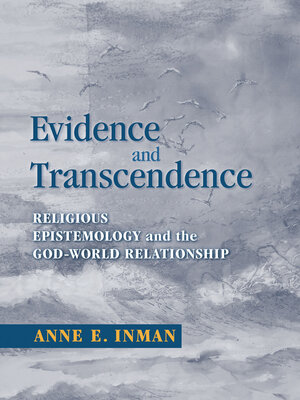Evidence and Transcendence
ebook ∣ Religious Epistemology and the God-World Relationship
By Anne Inman

Sign up to save your library
With an OverDrive account, you can save your favorite libraries for at-a-glance information about availability. Find out more about OverDrive accounts.
Find this title in Libby, the library reading app by OverDrive.



Search for a digital library with this title
Title found at these libraries:
| Loading... |
In Evidence and Transcendence, Anne Inman critiques modern attempts to explain the knowability of God and points the way toward a religious epistemology that avoids their pitfalls. Christian apologetics faces two major challenges: the classic Enlightenment insistence on the need to provide evidence for anything that is put forward for belief; and the argument that all human knowledge is mediated by finite reality and thus no "knowledge"of a being interpreted as completely other than finite reality is possible.
Modern Christian apologists have tended to understand their task primarily, if not exclusively, in terms of one of these challenges. As examples of contemporary rationalist and postliberal approaches, Inman analyzes in depth the religious epistemologies of philosopher Richard Swinburne and theologians George Lindbeck and Ronald Theimann. She concludes that none of their positions is satisfactory, because none can uphold the notion of God's transcendence while at the same time preserving a sound account of our claims to freedom and knowledge.
The root cause of such failures, Inman argues, is an inadequate philosophy of God and of the relation of God and the finite world. Her exploration of the theologies of Karl Rahner and Friedrich Schleiermacher provides the material for the constructive work in this book. Against rationalist and postliberal epistemologies, Inman calls for an austere grounding of Christian faith in the claim that God is known in human conscious activity as such, as the "other" that grounds the finite.






